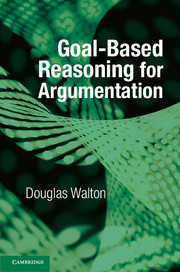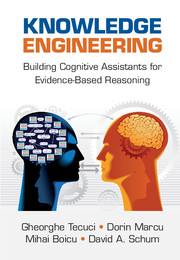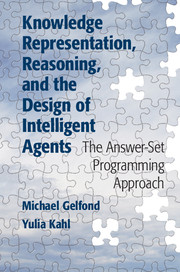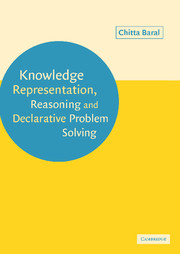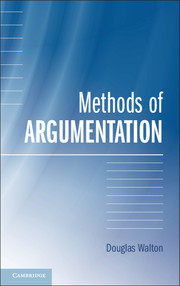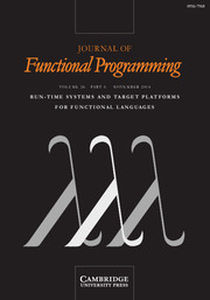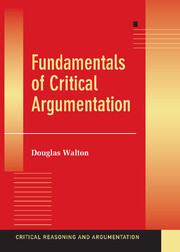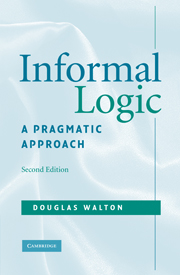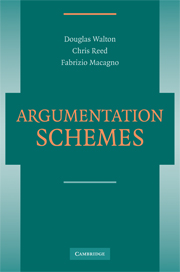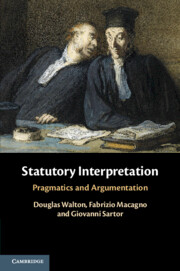Goal-based Reasoning for Argumentation
- Author: Douglas Walton, University of Windsor, Ontario
- Date Published: September 2015
- availability: This ISBN is for an eBook version which is distributed on our behalf by a third party.
- format: Adobe eBook Reader
- isbn: 9781316397343
Find out more about Cambridge eBooks
Adobe eBook Reader
Other available formats:
Hardback, Paperback
Looking for an inspection copy?
This title is not currently available on inspection
-
This book provides an argumentation model for means end-reasoning, a distinctive type of reasoning used for problem-solving and decision-making. Means end-reasoning is modelled as goal-directed argumentation from an agent's goals and known circumstances, and from an action selected as a means, to a decision to carry out the action. Goal-based Reasoning for Argumentation provides an argumentation model of this kind of reasoning showing how it is employed in settings of intelligent deliberation where agents try to collectively arrive at a conclusion on what they should do to move forward in a set of circumstances. The book explains how this argumentation model can help build more realistic computational systems of deliberation and decision-making, and shows how such systems can be applied to solve problems posed by goal-based reasoning in numerous fields, from social psychology and sociology, to law, political science, anthropology, cognitive science, artificial intelligence, multi-agent systems, and robotics.
Read more- Presents an argumentation-based point model of practical goal-based reasoning showing how it is applied in settings of persuasion and rational multi-agent deliberation, problem-solving and decision-making
- Because of its extensive use of examples to illustrate practical reasoning, this book can be used as a textbook or reading in upper level courses
- Uses argument visualisation tools to display the structure of arguments and explanations in examples in a way that is easy for readers to understand
- Shows how abductive reasoning (inference to the best explanation) can be used to derive a hypothesis about an agent's intention from evidence of the agent's actions and commitments
Customer reviews
Not yet reviewed
Be the first to review
Review was not posted due to profanity
×Product details
- Date Published: September 2015
- format: Adobe eBook Reader
- isbn: 9781316397343
- contains: 59 b/w illus. 2 tables
- availability: This ISBN is for an eBook version which is distributed on our behalf by a third party.
Table of Contents
1. Introduction to practical reasoning
2. Practical reasoning in health product ads
3. Formal and computational systems of practical reasoning
4. Practical reasoning in arguments and explanations
5. Explanations, motives, and intentions
6. Practical argumentation in deliberation dialogue
7. Goal-based argumentation in different types of dialogue
8. Practical rationality.
Sorry, this resource is locked
Please register or sign in to request access. If you are having problems accessing these resources please email [email protected]
Register Sign in» Proceed
You are now leaving the Cambridge University Press website. Your eBook purchase and download will be completed by our partner www.ebooks.com. Please see the permission section of the www.ebooks.com catalogue page for details of the print & copy limits on our eBooks.
Continue ×Are you sure you want to delete your account?
This cannot be undone.
Thank you for your feedback which will help us improve our service.
If you requested a response, we will make sure to get back to you shortly.
×


